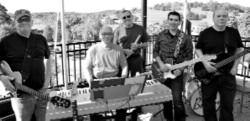
3 minute read
“I Learned it Better This Way!”
by Joseph Sheppard, College Counselor
Marc Foster
’13 spent the last half of his junior year at the Chewonki Semester School in Wiscasset, Maine, returning in time to see his brother Sean ’12 graduate. When we met to talk about his time at Chewonki, it was clear that the experience had affected him deeply. He came away with affection and respect for the school and its purpose that, like the many friends he made there, will stay with him for life.
Experiential learning is the name of the game at Chewonki. By living and studying with only 40 classmates per term, students pursue a rigorous, well-rounded curriculum oriented toward the sciences and based, to a considerable extent, on fieldwork. For example, in Marc ’ s major experiential class, “Natural History of the Maine Coast, ” the group took weekly four-hour field trips to nearby beaches, streams, and places on Chewonki Neck. The field study, Marc said, was exacting: students kept a field journal containing a site description of the place, notes on its appearance and how it was formed, and a species count for the day. Each student drew a diagram of the place and wrote down key identifiers of trees and plants (e.g. the number of needles on a pine tree). They logged every species of living creature; Marc said that he had identified between 40 and 50 species by the end of the semester.
Even the tests and quizzes in the course were hands-on, though there was a traditional sit-down midterm exam. For weekly quizzes, the class went on a walk. They were asked to identify a tree, a bird, or an insect, and had to recognize the birdcalls they heard. “The final exam was fun, ” Marc recalled. “There was some ‘ sit-down, ’ but then we went to Reed State Park. We went to different stations in the park in small groups. Each group did a site description and answered questions like,
‘Did the salt marsh or the dunes come first?’ Then we did a big species count. ” More than once in the interview he said, “I learned it better this way!”
In addition to traditional English and French classes, Marc took an advanced math course. Even the math instruction at Chewonki, he explained, was highly individualized because the students, although the same age, were at different places in their math preparation. All the math classes, however, shared the collaborative, experiential learning style that Marc enjoyed in his science course. He recalled, for example, riding in a car with the teacher while monitoring rates of acceleration and the like.
On Monday mornings, time was set aside for a regular “farm talk” with the head farmer at the school-run farm that supplies some of their food. They learned about agriculture and industrial farming, and then split into groups to visit the farm and learn about the animals. Marc recalled one special day when they went on a logging and forestry trip, where they helped with horse-powered logging and observed a sawmill at work—something few, if any, of the students had ever seen.
“Everyone is [at Chewonki] because they want to be there, ” Marc reflected last summer. “Everyone is really interested in the subjects. If I had learned by myself, if I hadn ’ t been with all the people, I wouldn ’ t have learned as much. ” Whether there was something in that pure Maine air, or whether the close contact with nature affected the group, they will never know. But whatever the reason, they all voluntarily gave up their computers for the last ten days of the semester. “It was nice, ”
Marc recalled. “We sat in the lounge, talked, played the guitar,
and sang.
Marc Foster ’13
Marc with LA friends on Mountain Day, L–R: Maddy Caron ’12, Carolyn Marcantonio ’13,
Marc Foster ’13, Julie Tyson ’12,
Alex Thornton ’12, and Patrick Burns ’13








